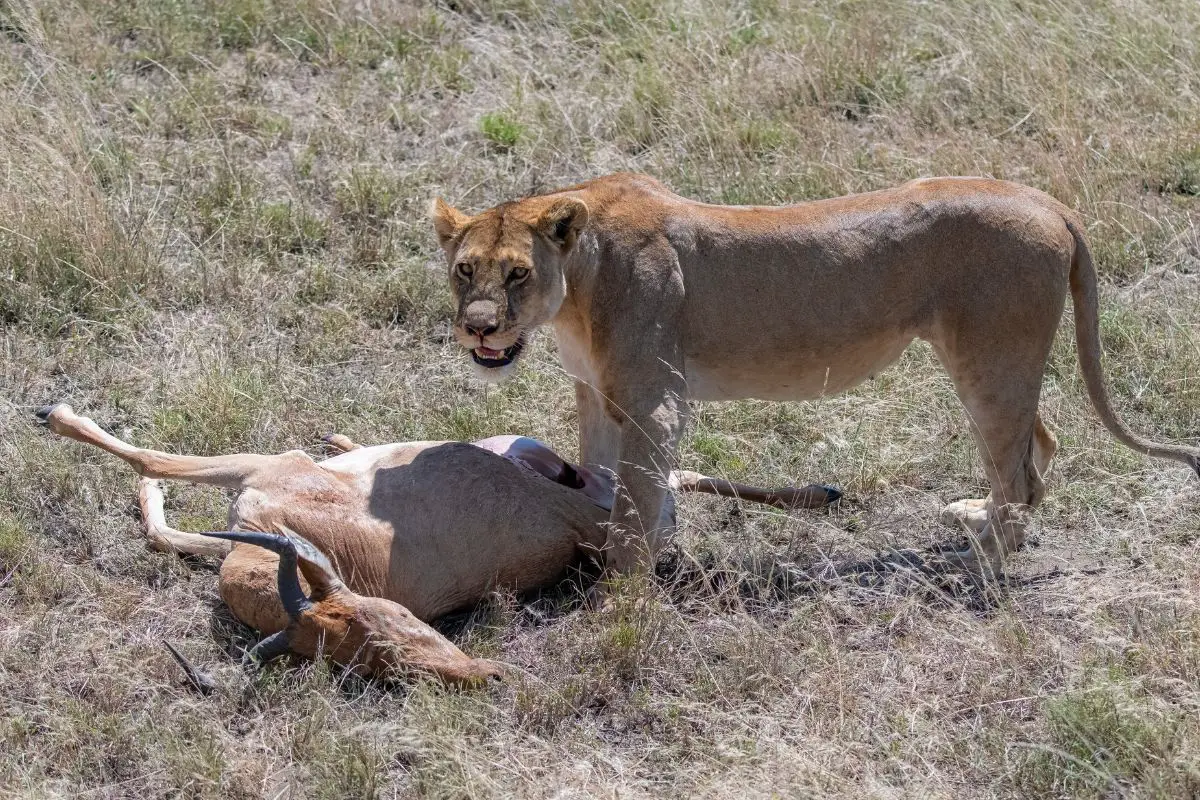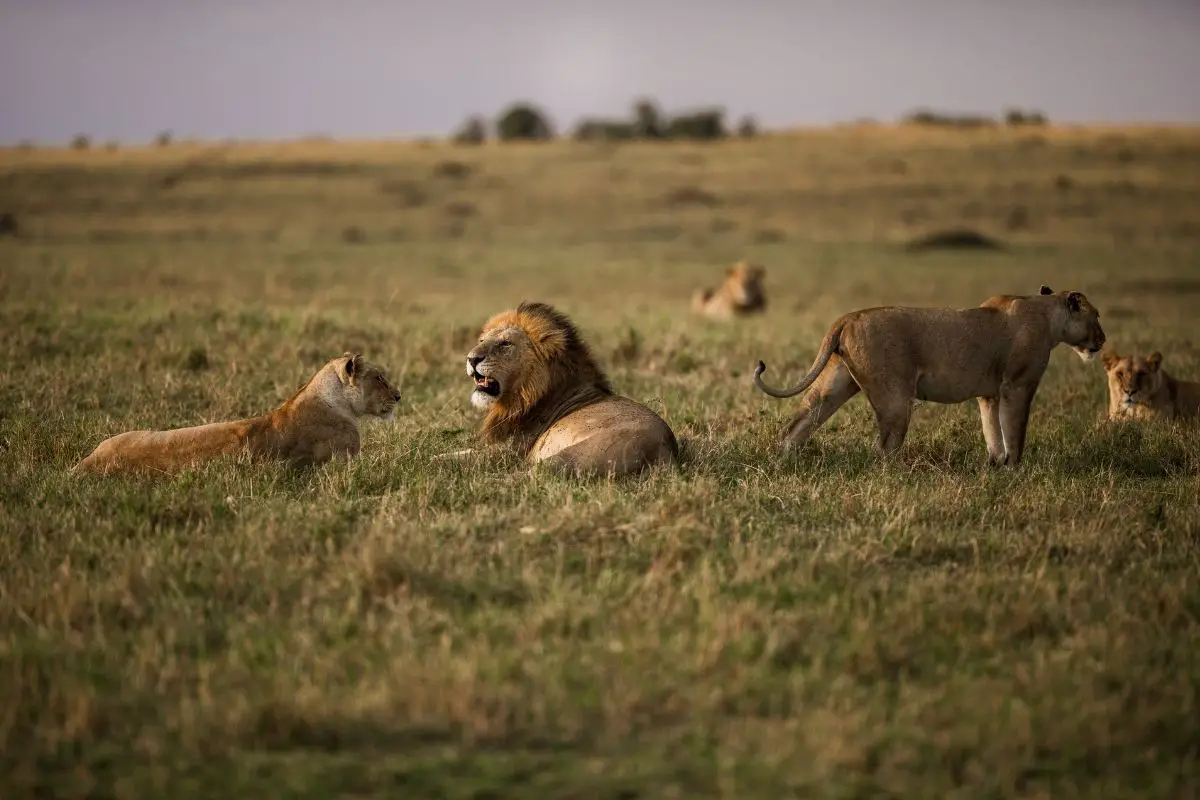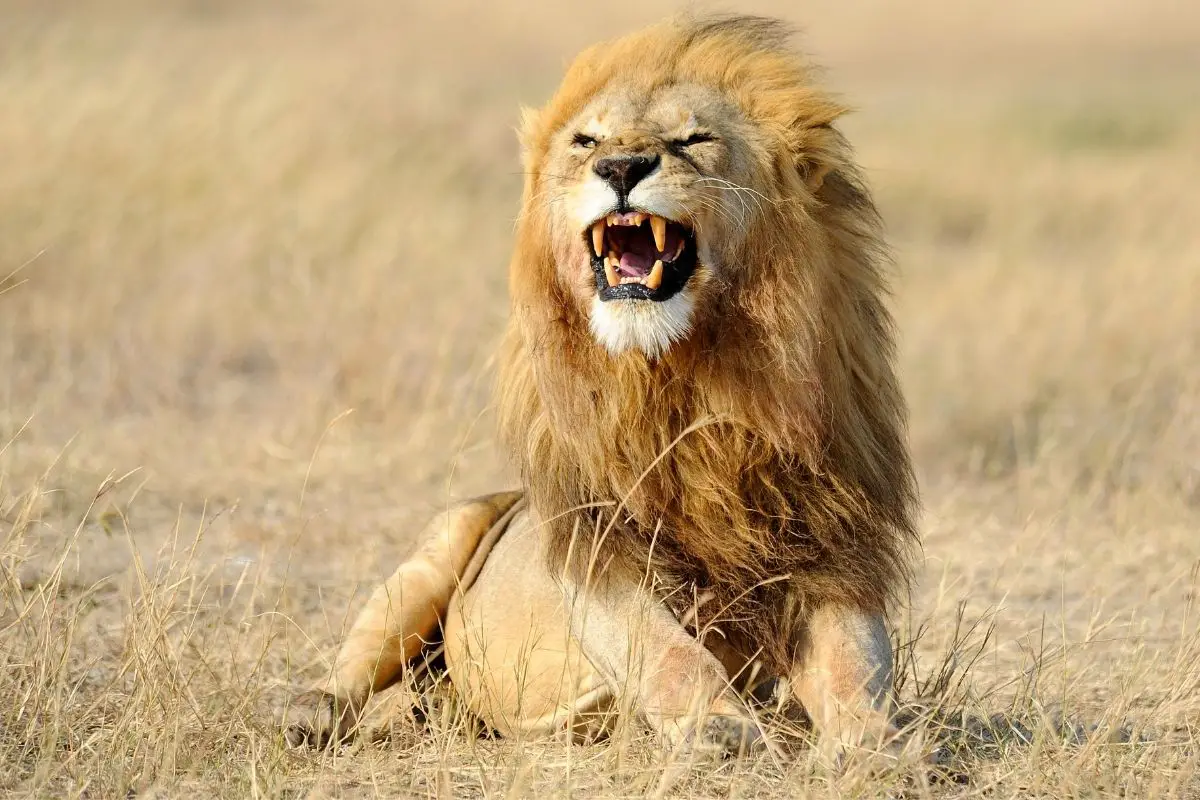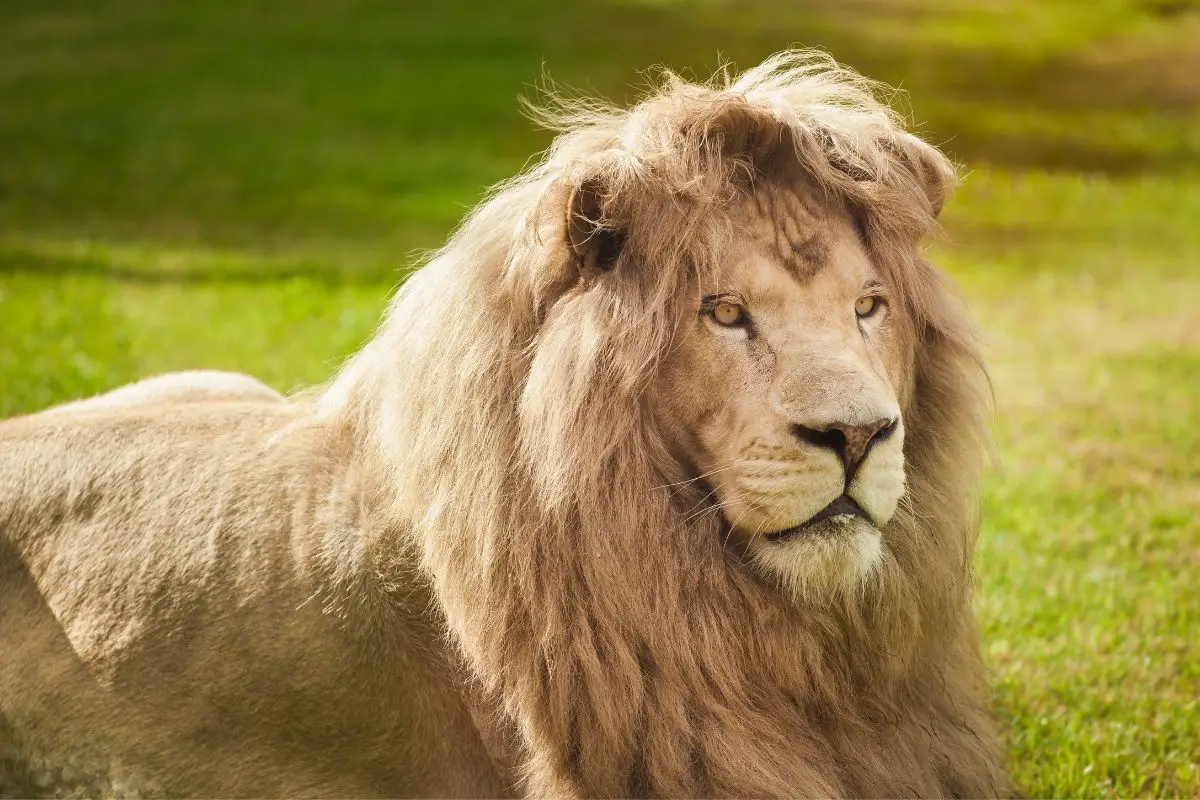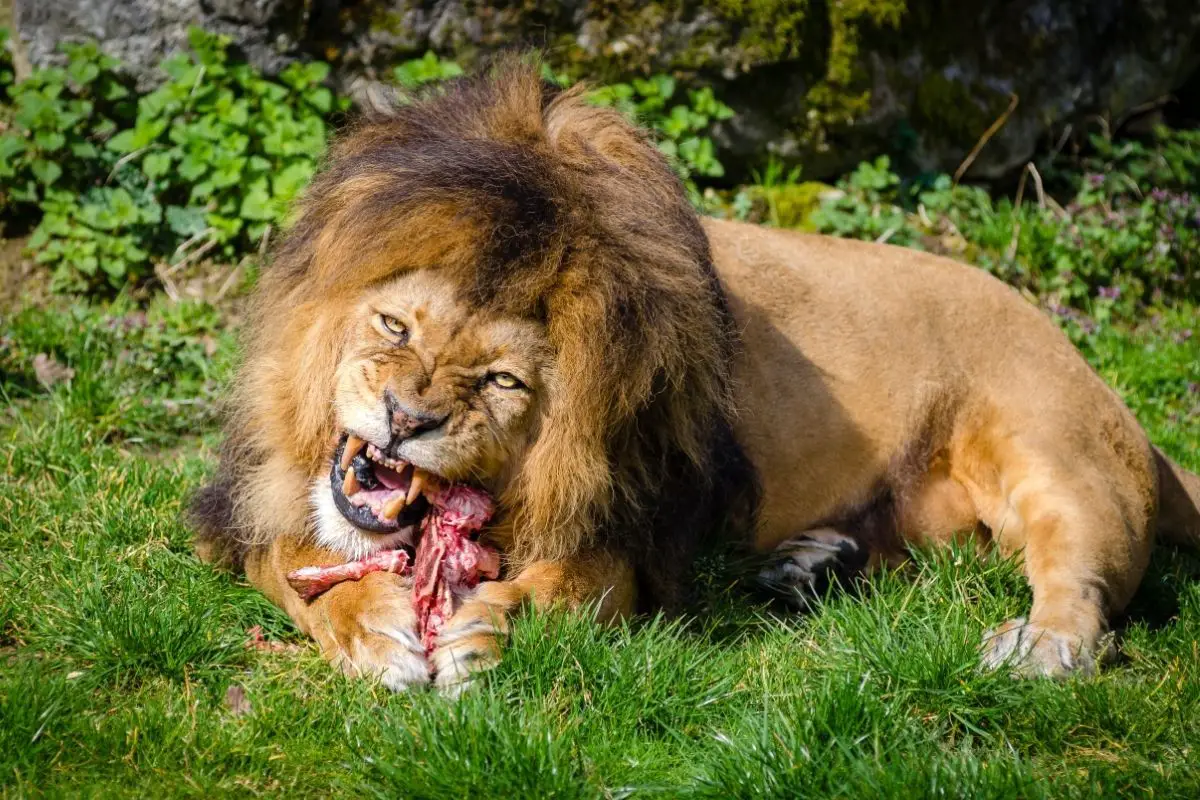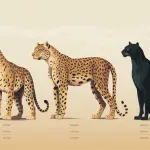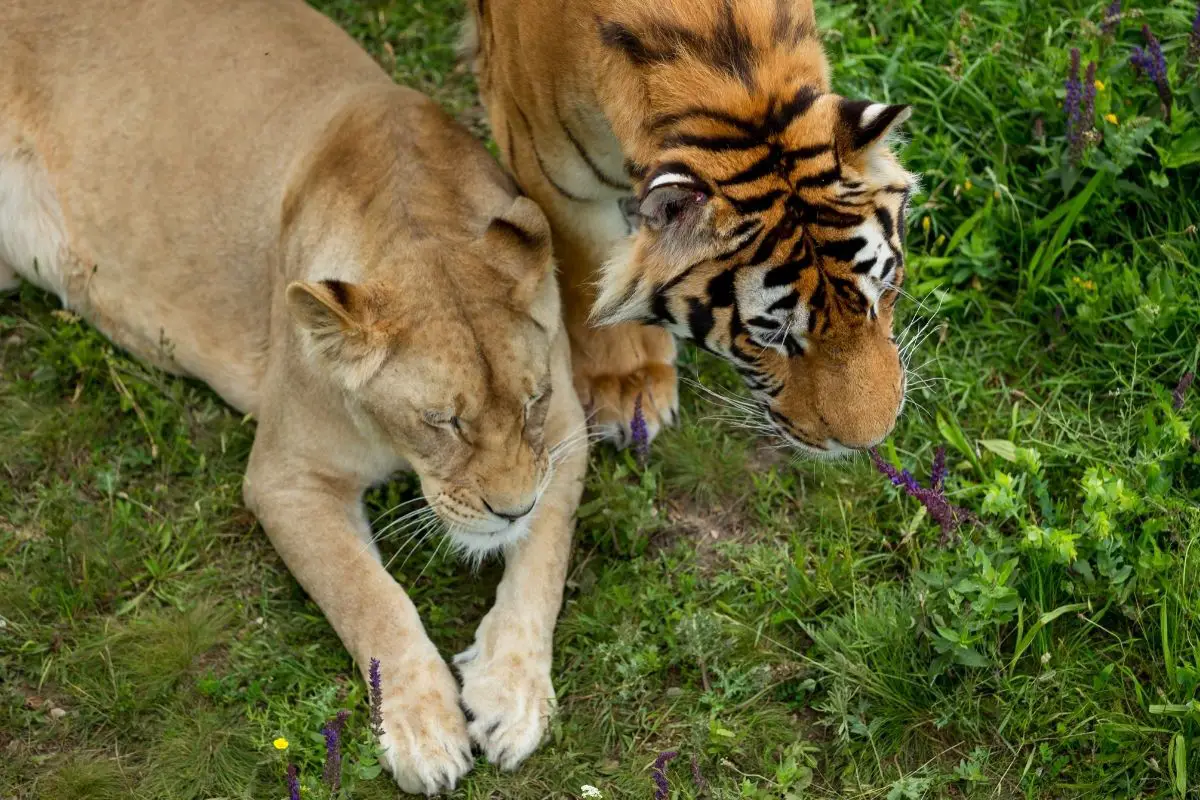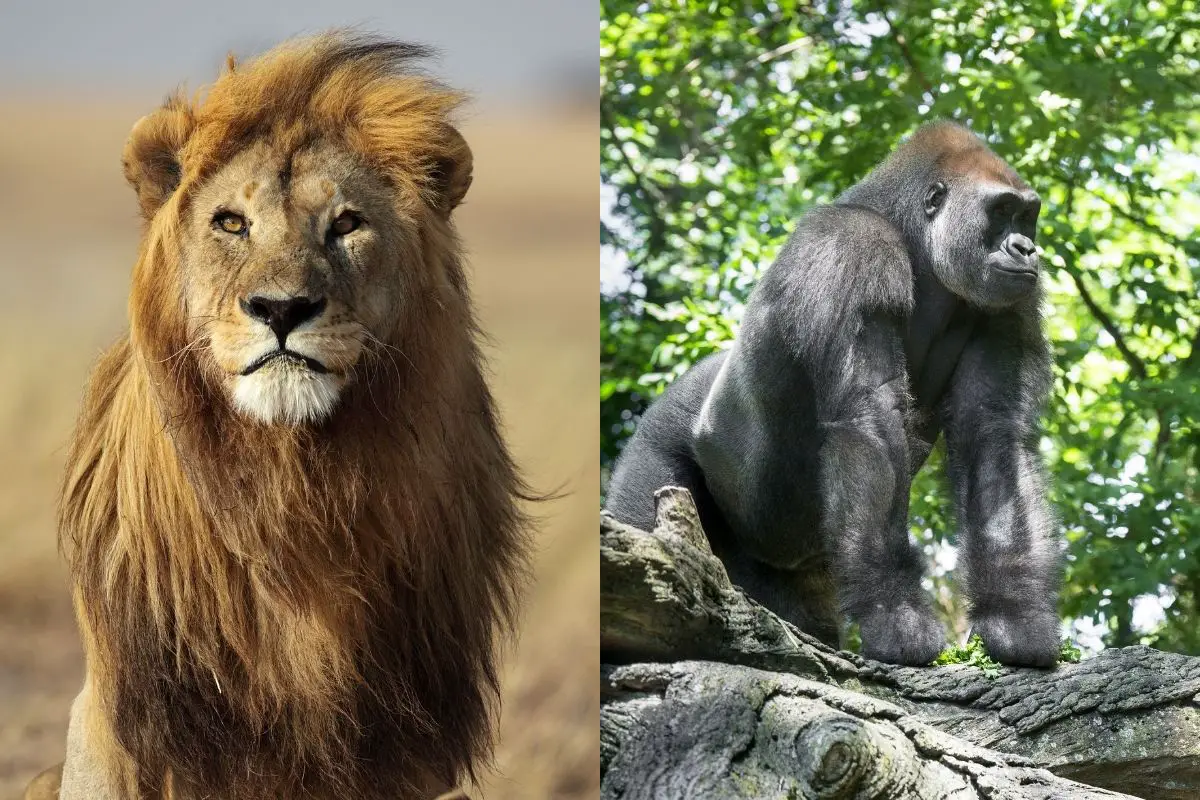Updated: July 2025
Lions are among Africa’s most formidable apex predators, with a surprisingly diverse diet that includes everything from massive buffalo to small rodents. But when it comes to African wild dogs, the relationship is far more complex than simple predator-prey dynamics.
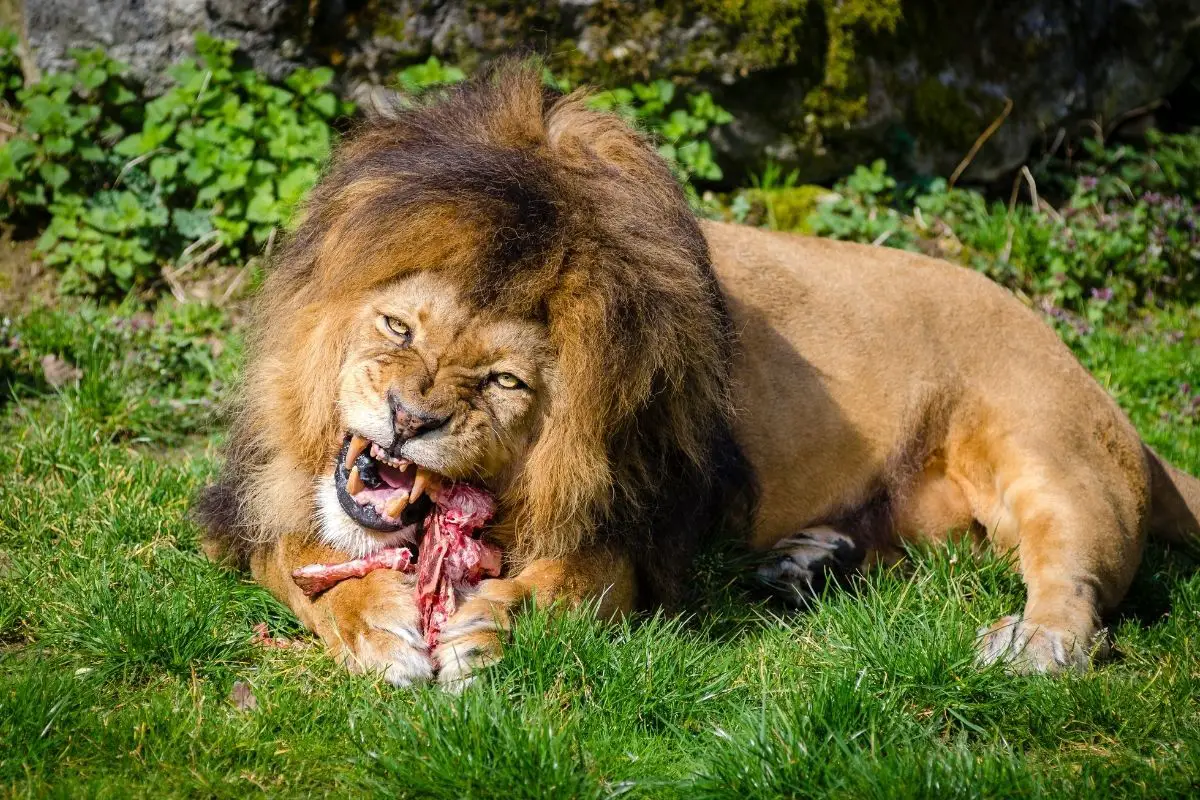
As obligate carnivores, lions will hunt and consume a wide variety of animals across the African savannah, woodlands, and grasslands where they roam.
The ecosystems where lions thrive are home to countless potential prey species, but African wild dogs occupy a unique position in this food web. The short answer is no—lions don’t eat wild dogs, even though they frequently kill them.
This fascinating behavioral pattern reveals important insights into predator competition, territorial behavior, and the complex relationships that shape African ecosystems.
Let’s explore the intricate dynamics between these two remarkable carnivores and understand why lions kill but don’t consume their canine competitors.
What Do Lions Eat?
Lions are powerful carnivorous mammals capable of consuming up to 25% of their body weight in a single feeding session—that’s potentially 50-60 pounds of meat for an adult male lion.
This remarkable capacity allows lions to hunt and eat large prey that can sustain them for 3-4 days between successful hunts, which is crucial since only 20-30% of their hunting attempts succeed.
Living in social groups called prides (typically 10-15 individuals), lions must secure enough food to feed multiple adults and cubs simultaneously, making large prey essential for their survival strategy.
Primary Prey: Large Ungulates
Lions primarily target ungulates—large, hoofed mammals that are typically herbivores. These animals represent the most efficient hunting investment, providing substantial nutrition relative to the energy expended during the hunt.
The most common prey species include:
- Zebras (400-600 lbs) – High-value targets despite their powerful kicks
- Wildebeest (300-600 lbs) – Abundant during seasonal migrations
- Buffalo (1,000-1,900 lbs) – Dangerous but extremely nutritious
- Various antelope species (50-400 lbs) – Including impala, kudu, and waterbuck
- Gazelles (25-165 lbs) – Faster but smaller prey
Secondary and Opportunistic Prey
Lions are highly adaptable hunters and will consume virtually any animal they can catch when primary prey is scarce. Their opportunistic diet includes:
- Warthogs and bush pigs (110-250 lbs)
- Small mammals: hares, mice, and ground squirrels
- Birds: ostriches, guinea fowl, and ground-dwelling species
- Fish and reptiles: during dry seasons when concentrated near water sources
- Carrion: fresh carcasses killed by other predators or natural causes
High-Risk, High-Reward Prey
When opportunities arise, lions will attempt to take down much larger, more dangerous animals—though this requires coordinated group effort and careful timing:
- Giraffes (2,600-3,000 lbs) – Their kicks can be fatal to lions
- Young elephants (200-1,000 lbs) – Only when separated from protective herds
- Rhinoceroses (3,000-5,000 lbs) – Extremely rare and dangerous
- Hippopotamuses (3,000-4,000 lbs) – Usually only attempted when hippos are away from water
The key pattern here is clear: lions typically hunt herbivores, not other carnivores. This preference stems from both nutritional and behavioral factors that become crucial when examining their relationship with wild dogs.
Do Lions Eat Wild Dogs?
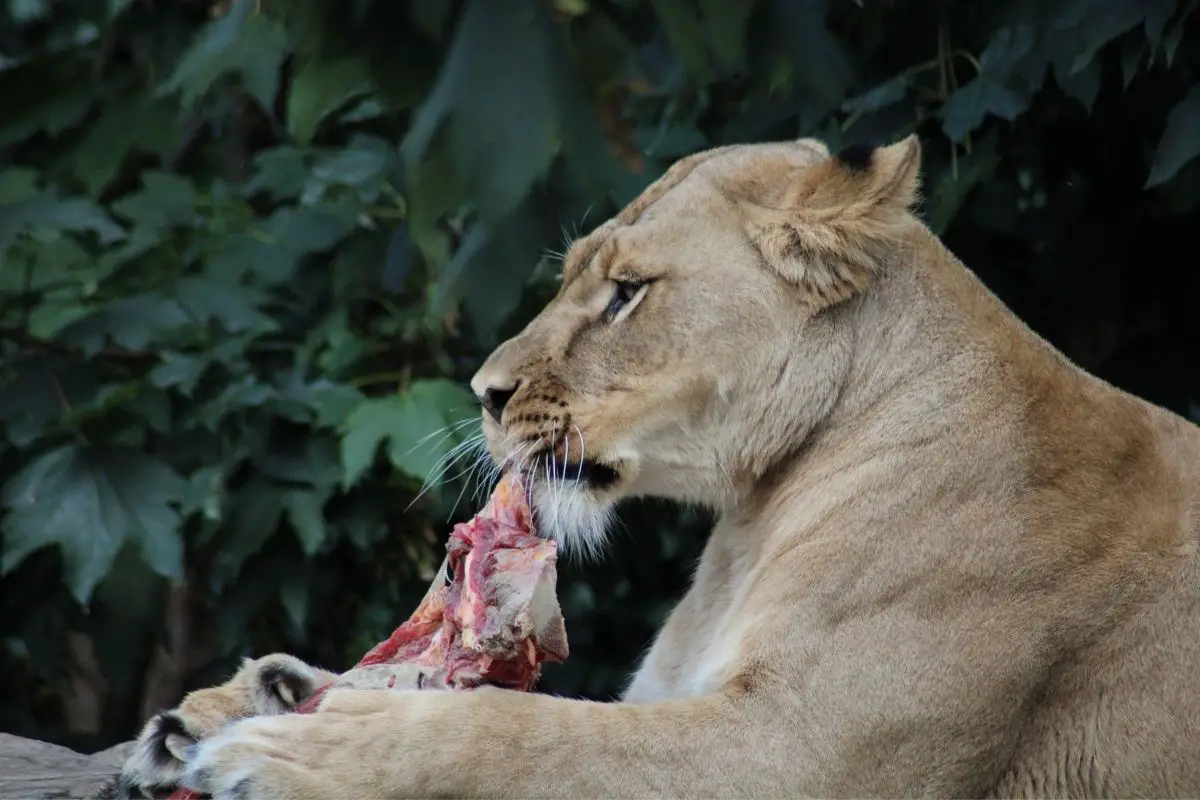
Despite regularly killing African wild dogs, lions do not consume them. This behavior has been consistently documented by wildlife researchers across multiple African ecosystems and represents one of the most intriguing aspects of interspecies competition.
Why Lions Kill Wild Dogs
African wild dogs (also called painted wolves) are highly efficient pack hunters with a success rate of 80-90%—significantly higher than lions’ 20-30% success rate. This creates intense competition for the same prey species across overlapping territories.
Lions kill wild dogs for several interconnected reasons:
- Resource competition: Both species target similar prey animals
- Territory defense: Lions view wild dogs as territorial intruders
- Kleptoparasitism prevention: Wild dogs sometimes steal kills from lions
- Competitive exclusion: Reducing competitor numbers increases lion hunting success
The Killing Pattern
When lions encounter wild dog packs, they will aggressively chase and attack them, often focusing on:
- Pups and juveniles (easier targets with higher mortality impact)
- Adult pack members caught away from the group
- Entire packs when lions have numerical advantage
Lions are responsible for up to 68% of adult wild dog mortality in some regions, making them the primary threat to wild dog populations—more dangerous than disease, starvation, or human conflict.
Why Lions Don’t Eat Wild Dogs
After killing wild dogs, lions consistently abandon the carcasses without consuming them. This behavior occurs because:
- Taste preference: Carnivore meat may be less palatable than herbivore flesh
- Nutritional factors: Wild dogs are lean and muscular, providing less fat content
- Instinctual behavior: Lions’ hunting instincts are calibrated for herbivorous prey
- Competitive motivation: The killing serves territorial/competitive purposes, not nutritional ones
Instead of being consumed by lions, wild dog carcasses are typically scavenged by spotted hyenas, vultures, jackals, and other opportunistic feeders that are less selective about carnivore meat.
Do Lions Eat Wild Dogs In Captivity?
In captivity, lions receive carefully planned diets designed by zoo nutritionists to replicate their natural feeding patterns while meeting all nutritional requirements in a controlled environment.
Captive lions are never fed wild dogs, and this absence isn’t due to availability or cost concerns. Zookeepers deliberately avoid feeding carnivore meat to lions because:
- Natural behavior mimicry: Captive diets aim to reflect wild feeding preferences
- Nutritional optimization: Herbivore meat provides better nutritional profiles
- Digestive compatibility: Lions’ digestive systems are adapted for herbivore consumption
- Behavioral enrichment: Familiar prey types support natural feeding behaviors
Typical Captive Lion Diet
Instead of wild dogs, captive lions receive:
- Beef and horse meat (primary protein sources)
- Chicken and rabbit (variety and enrichment)
- Specialized carnivore supplements (vitamins and minerals)
- Bones for dental health (usually beef or horse femurs)
This diet provides 11-15 pounds of meat daily for adult lions, closely matching their wild consumption patterns while ensuring optimal health in captivity.
Conservation Implications
The lion-wild dog dynamic has serious conservation consequences. African wild dogs are critically endangered, with only 6,000-7,000 individuals remaining in the wild as of 2025.
Lion predation significantly impacts wild dog populations by:
- Reducing pack sizes below viable breeding thresholds
- Fragmenting territories and limiting range expansion
- Increasing stress levels that affect reproduction and survival
- Forcing habitat shifts into suboptimal areas
Conservation strategies now account for this relationship, with some protected areas using spatial management to reduce lion-wild dog encounters while maintaining healthy populations of both species.
Conclusion
Lions kill African wild dogs regularly but never consume them, representing one of nature’s most striking examples of competitive killing without predation. This behavior stems from intense resource competition rather than nutritional needs.
Understanding this dynamic is crucial for wildlife conservation, as it explains why wild dog populations struggle to recover despite protection from human threats. Lions see wild dogs as competitors, not prey—a distinction that has profound implications for both species’ survival.
The relationship between these two remarkable carnivores illustrates the complex web of interactions that shape African ecosystems, where competition for resources can be just as powerful as predation in determining species survival and distribution.
For wildlife enthusiasts and conservationists, this knowledge emphasizes the importance of understanding interspecies relationships when developing protection strategies for endangered species like the African wild dog.
- Bengal Cat vs Wild Bengal Tiger: Complete Comparison 2025 - October 31, 2025
- Complete Wild Cat Spotting Guide for Hikers 2025 - October 31, 2025
- Lynx vs Bobcat: Complete Field Identification Guide 2025 - October 30, 2025

